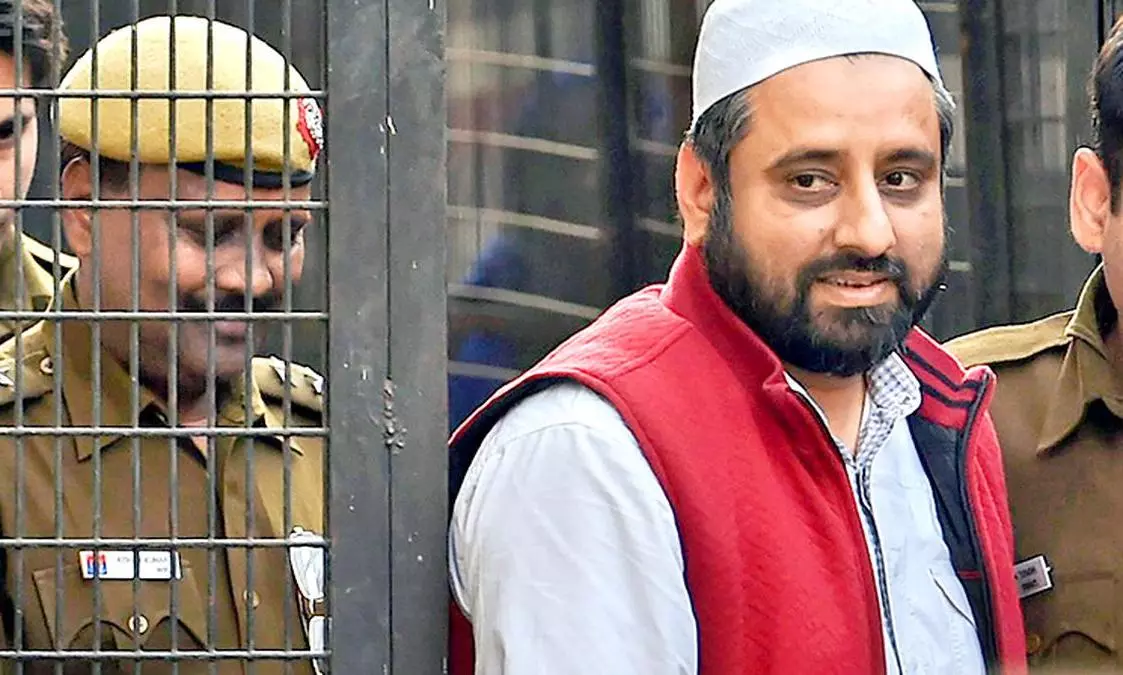
Delhi Waqf case: ED challenges Amanatullah Khan's release in HC
text_fieldsNew Delhi: The Enforcement Directorate (ED) approached the Delhi High Court on Monday, challenging a trial court's decision that refused to take cognisance of a charge sheet filed against AAP MLA Amanatullah Khan and ordered his release in a money laundering case related to alleged irregularities in the Delhi Waqf Board.
Justice Manoj Kumar Ohri directed the ED to submit the trial court's orders for review and emphasized the need to address the issue of sanction. The judge pointed out that the ED should provide a concrete stance on the issue of sanction and not merely mention it as a ground in their petition, as it is likely to be contested.
The trial court had earlier declined to take cognisance of the alleged offence under the Prevention of Money Laundering Act (PMLA), citing the absence of the requisite sanction for prosecution. The matter is now set for a hearing on January 13, 2025.
The ED's lawyer argued that the trial court had found adequate grounds to proceed against Khan after examining the prosecution complaint and noted that it was essential to determine if cognisance could be taken in the absence of the sanction before summoning Khan. Citing a Supreme Court ruling, the lawyer maintained that a lack of sanction was a "curable defect," allowing the prosecution to seek it.
The trial court had also stated there was no legal justification to extend Khan’s detention. The ED filed a 110-page supplementary prosecution complaint on October 29, accusing Khan of laundering money gained through corruption at the Delhi Waqf Board. The chargesheet named Mariam Siddiqui as well, but she was not arrested and was discharged by the court due to insufficient evidence.
The ED has argued that there is sufficient evidence to prosecute Khan and others under the PMLA. Khan, who was arrested on September 2, had his residence searched by ED officials in Delhi’s Okhla area. He was accused of being evasive during questioning.
The money laundering investigation involves two FIRs: one by the CBI related to alleged Waqf Board irregularities and another concerning disproportionate assets, filed by the Delhi Police’s anti-corruption unit.
With PTI inputs






















